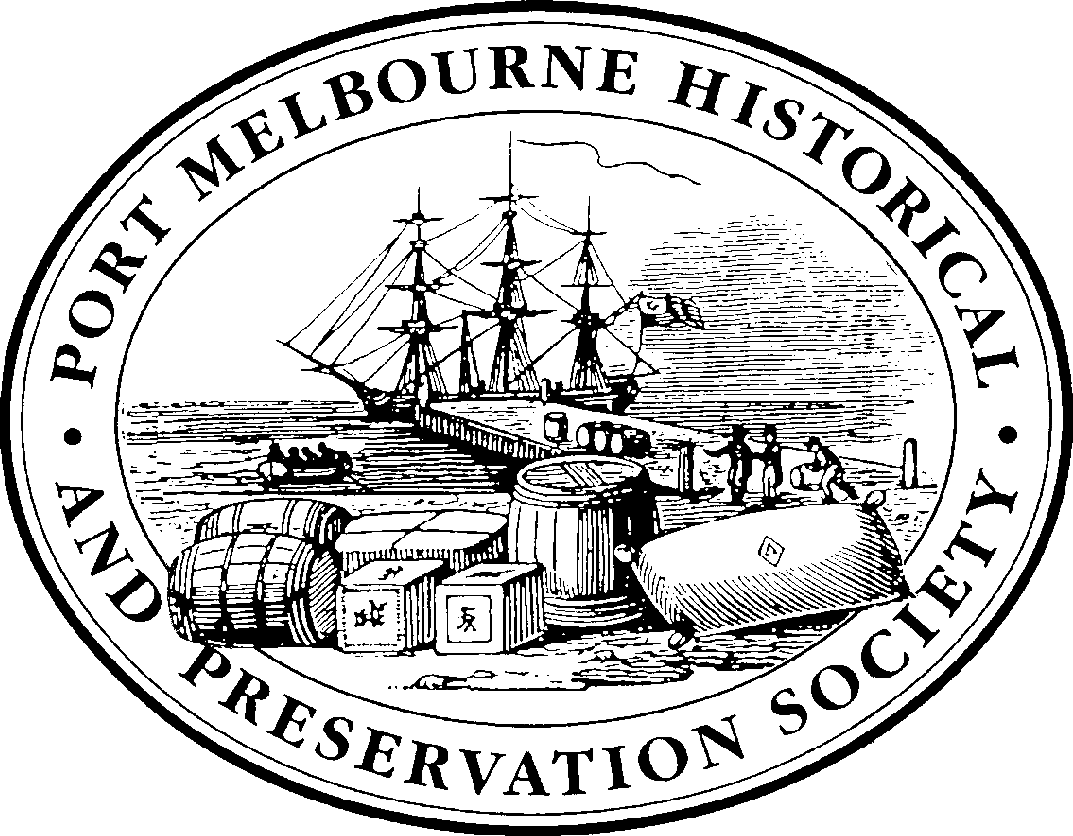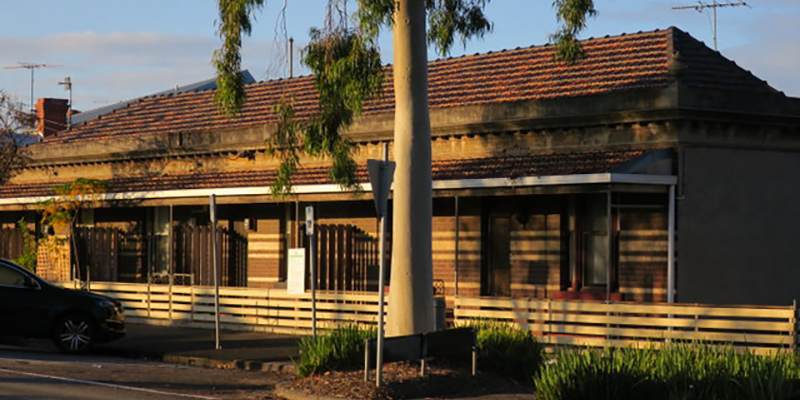Growing up in McCormack St
In April 2013, John Gilchrist walked the places where he grew up. The walk triggered these memories:
John’s family came to live in Port Melbourne from Warburton following the devastating Black Friday bushfires of January 1939.
His father was a forester, but it was his mother who brought up the three boys – first from a small house on the south eastern corner of Bridge St and Esplanade East, and later in an unusual block at 16 McCormack St where they kept ducks, chooks and pigeons.
John said that often ‘food was not easy to come by in those days’. He described the many ways they had of finding cheap food: broken biscuits from the Swallow & Ariell factory shop in Stokes St, bullock hearts and cows’ tongues from the abattoirs down the end of Ingles St, mussels off the piers, fruit trees, and bruised fruit from Brookes Lemos*. Fishing was good because cruise ships would throw food overboard so the fish would gather in the water to feed on it.
There were many ways of earning some money: selling the Record at North Port, delivering telegrams to Garden City, delivering ice through the back doors of many Port houses, and selling streamers at the Pier.
He attended St Josephs and later won a scholarship awarded by Port Council to South Tech.
John enjoyed taking Sullivans draught horses, stabled at the rear of 38 Cruikshank St, onto Lagoon Reserve to graze. They would have had 15 to 20 horses, he said, and they would also take them down to the beach for a swim.
He and other lads were cockatoos for the SP bookies who would gather near Seisman St, off Lagoon Oval. They would whistle to alert the presence of the police. But once the police came dressed up all in cricket whites from the back of a furniture van – there were no buses then – and made their way over the ground. It was only when they got there and showed the badge that people realised what was going on.
Air raid shelters zig zagged across Lagoon Reserve.
At the end of Pickles St, the Distillery discharge was warm and smelt of hops. It was good for swimming.
More
*Brookes Lemos Ltd.
“By far the greater proportion or the company’s products was taken for the fighting forces, and still heavier demands were being made, said the chairman. Towards the end of last year the directors received permission to erect portion of a new factory at Port Melbourne, which should be in full production within a few months. Canned fruits and vegetables and various tomato products would be manufactured at the new factory, and the entire output would be for Government contracts.”
The Advertiser 19 May 1943 via Trove

